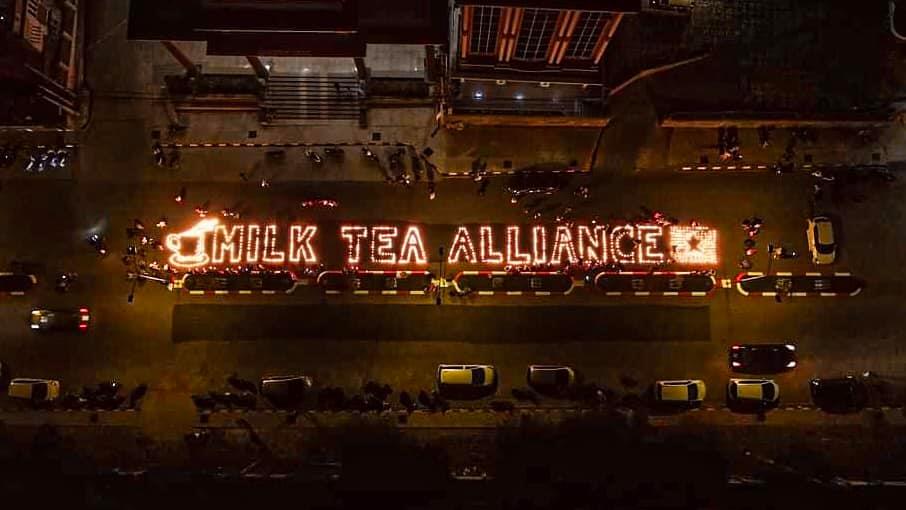MANAGING EDITOR ZHI JIAO DANIELLE GOH — First it was Hong Kong and Taiwan. Then it was Thailand. And now Myanmar. What’s going on in Asia?
Perhaps the Milk Tea Alliance can help you understand the situation in the region.
The Milk Tea Alliance began with a tweet by Thai actor Vachirawit Chivaaree. He posted an image of Hong Kong as an independent country and angered many Chinese users who called to “cancel” him from the entertainment industry.
Chivaaree’s Thai fans defended him and launched a Twitter war against the Chinese users, a sentiment which was quickly supported by Hong Kong and Taiwan users. For the first time, then, netizens from ASEAN (the Association of Southeast Asian Nations) countries formed an alliance to push back on the increasing presence of Chinese nationalist users on Twitter.
Why Milk Tea then?
Southeast Asians traditionally drink their tea with milk. A few examples include Taiwanese bubble tea, Hong Kong-style milk tea, Thai tea and Burmese Lahpet- all local variations of milk tea.

Similarly, Asian countries have governments that are authoritarian and sometimes corrupt. As pro-democracy protests rose in Hong Kong and Thailand, the Milk Tea Alliance soon evolved into a dynamic multinational protest movement advocating democracy and human rights. Generation Z people (those born between 1996-2010) are leading the alliance. They coalesce across borders through social networks, where they share and adopt protest strategies. Over the last few weeks in Myanmar, protesters have deployed a variety different tactics, including musical performances outside of foreign embassies and broken down cars parked at busy intersections.
But there’s another catch.
Chinese tea has traditionally lacked milk. Now, Milk Tea is seen as a symbol of anti-China Communist party solidarity. Countries like the Philippines and India, which have territorial disputes with China, support the alliance. This reflects how smaller Asian nations are increasingly unhappy with China’s “cancel culture” and hard-line attitudes to opposing voices.
Is the alliance a signal that Asian countries are finally tired of being told by bigger nations what to do, and are uniting to push back outside forces? Or will this new solidarity fizzle if the Milk Tea movement cools?


One Reply to “ASEAN: THE MILK TEA MOVEMENT BREWS IN SOUTHEAST ASIA”